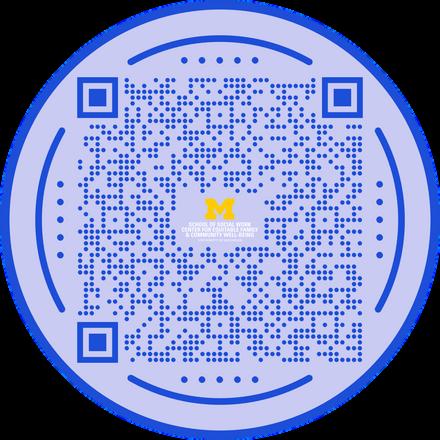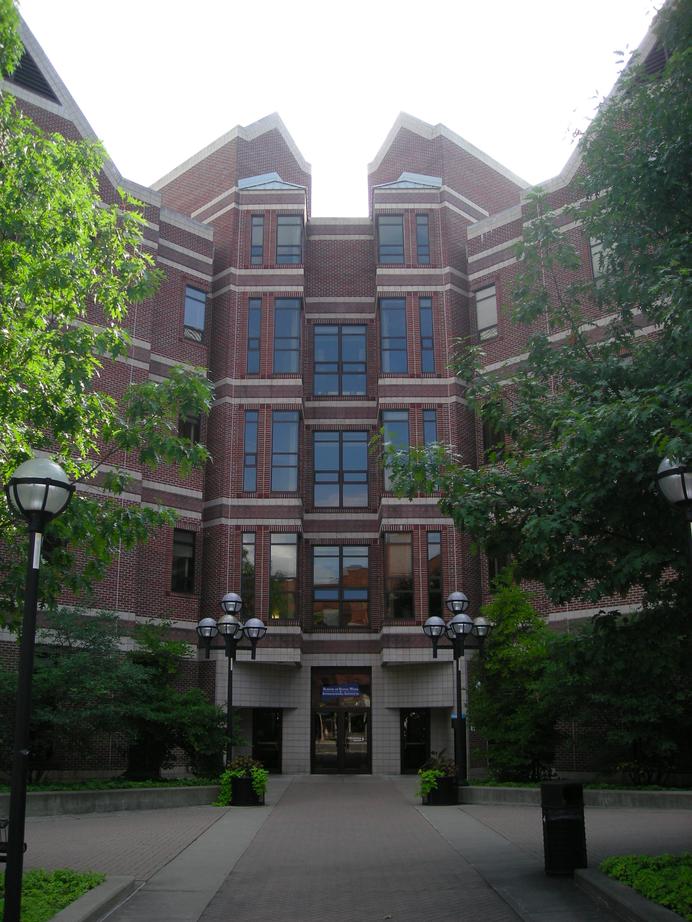CENTER ANNUAL REPORT







As economic and social disparities threaten to become more entrenched, it is increasingly important to study and amplify strategies that achieve greater equity. Our Center for Equitable Family and Community Well-Being has been around for over three years and has successfully built partnerships and garnered funding in support of our mission to foster a more equitable distribution of power and resources We have a dedicated team of staff and faculty that approach our work with energy and compassion
We are building a reputation for generating tools and dashboards that are useful to the broader community, including collecting and organizing youth exit survey data for Detroit’s summer youth employment program and documenting mortgage trends across Detroit’s neighborhoods We share what we are learning by producing digestible research via white papers and evaluation reports
We have three exciting projects that build upon longstanding partnerships One is with the Community Economic Development Association of Michigan (CEDAM) where we are developing a statewide evaluation infrastructure for Child Savings Accounts. A second is working in collaboration with Southwest Solutions on a United Way challenge grant to generate affordable housing and other economic development that builds community wealth in the East Chadsey-Condon neighborhood in southwest Detroit. Our most recent grant is partnering with the Washtenaw County Racial Equity Office to evaluate their American Rescue Plan with an emphasis on supporting the 23 organizations that comprise its Community Priority Fund.
We welcome faculty affiliates who share our vision from the University of Michigan and across the country (and even internationally) We provide an opportunity for affiliates to learn from one another and get feedback on their current research through regular on-line workshops. One faculty affiliate, Dr. Sean Drake, even came to campus in March to give a powerful talk on how educational inequality manifests in a local school district. Our actions today set the foundation for the world we want to see tomorrow. We will continue to work collaboratively promoting ideas and efforts that help communities and families thrive We welcome all who want to join us in this journey.
Dr. Trina R. Shanks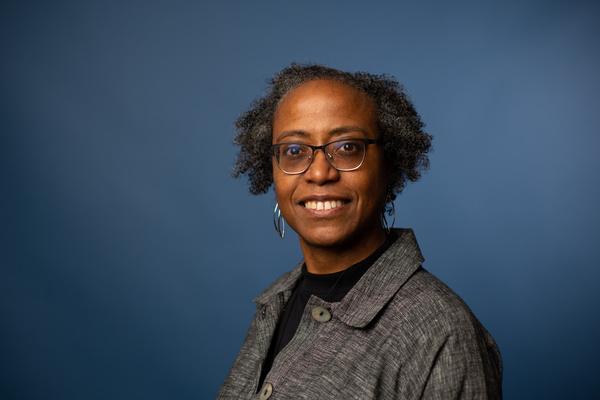 Harold R Johnson Collegiate Professor of Social Wor Director of Community Engagement Founding Director, Center for Equitable Family & Community Well-Being University of Michigan School of Social Work
Harold R Johnson Collegiate Professor of Social Wor Director of Community Engagement Founding Director, Center for Equitable Family & Community Well-Being University of Michigan School of Social Work


Our Center's mission is to foster equitable distribution of power and resources by utilizing collaborative relationships, innovative practices, and community approaches. We engage intentionally with communities, empowering them to drive the process, working towards creating a more equitable society.

May your hands be an extention of your heart and may you do the work of love with them.
-Aja Monet
"To amplify ideas that empower families and communities to thrive."
ECONOMIC ECONOMIC ECONOMIC EMPOWERMENT EMPOWERMENT EMPOWERMENT

ANNUAL ANNUAL ANNUAL REPORTING REPORTING REPORTING
MECHANISMS MECHANISMS MECHANISMS
COLLECTIVE COLLECTIVE COLLECTIVE VOICE & VOICE & VOICE & ACTION ACTION ACTION

IINNOVATION INNOVATION NNOVATION
RECIPROCITY & RECIPROCITY & RECIPROCITY & BIDIRECTIONAL BIDIRECTIONAL BIDIRECTIONAL RELATIONSHIPS RELATIONSHIPS RELATIONSHIPS


EDUCATION & EDUCATION & EDUCATION & STUDENTS STUDENTS STUDENTS

Dr Trina Shanks is Harold Johnson Collegiate Professor and Director of Community Engagement at the University of Michigan School of Social Work and Founding Director of the Center for Equitable Family & Community Well-Being. She has a MSW and Ph.D. from Washington University and a Masters in Comparative Social Research from the University of Oxford as a Rhodes Scholar. Her research interests include the impact of poverty and wealth on child well-being; assetbuilding policy and practice across the life cycle; and community and economic development Dr Shanks is an American Academy of Social Work & Social Welfare fellow and network co-lead for the Social Work Grand Challenge: Reversing Extreme Economic Inequality.
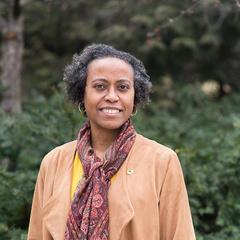
Dr Patrick Meehan, our dedicated Program Manager with over 17 years of experience working with vulnerable families and youth As the inaugural leader of the Center for Equitable Family and Community Well-Being, Patrick drives progress towards the organization's strategic vision. He has successfully managed multiple research projects to completion and collected over 7,000 exit surveys for Grow Detroit's Young Talent since 2010 Patrick holds a PhD in Social Work and Political Science from the University of Michigan, an MSW from the same university, and a BS in education from the University of Wisconsin. His research interests revolve around oppressive systems, poverty, child development, and community/political engagement.
Michael Kloc, is our Project Coordinator, who brings his passion for equity issues in Michigan to the forefront With over a decade of experience collaborating with community organizations, Michael excels in fostering partnerships that prioritize community participation In his role at the Center for Equitable Family and Community Well-Being, he leverages his diverse knowledge and experience to cultivate an evolving academic community. Michael holds a Master of Social Work in Global Social Work from the University of Michigan (2022) and a Bachelor of Social Work from Oakland University (2021) His research interests span environmental justice, immigration, poverty, and community/political engagement.

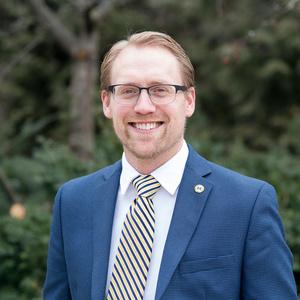 Trina R. Shanks Director
Patrick Meehan Program Manager
Michael Kloc Project Coordinator
Trina R. Shanks Director
Patrick Meehan Program Manager
Michael Kloc Project Coordinator
Dr Camille R Quinn, PhD, AM, LCSW, LISW-S, is a health criminologist scholar who uses mixed methods to investigate the health and mental health equity of Black/African American girls and young women with legal system-involvement to culturally tailor effective interventions to reduce their mental health burden and promote crime desistance Dr Quinn is a Principal Investigator (PI) for two National Institute of Health funded studies (R21 and Loan Repayment Program Award) investigating legal system-involved Black girls’ and their parents/caregivers’ stress and protective factors. She is also the PI of a MacArthur Foundation Safety and Justice Challenge grant to increase criminal justice reform Currently, Dr Quinn is an invited panelist for the ReBUILDetroit Program Research Day panel (September 2023), and speaker at the University of Alabama at Birmingham Social Science Justice Research Center (September 2023) and the Trauma section of the British Psychological Society global conference (March 2024). She is a Society for Social Work Research Fellow and a 2023 Milestone Awardee from the University of Chicago Crown School of Social Work, Policy, and Practice (AM ’98)

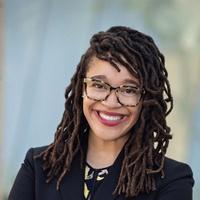
Dr. Ashley Cureton is an assistant professor at the University of Michigan in the School of Social Work and School of Education She is a Global & Intercultural Competence Fellow through the Council on Social Work Education Dr Cureton explores the educational, mental health, and resettlement needs of forcibly displaced children, youth, and families. She is currently researching the resettlement needs and challenges of Afghan evacuees and resettlement workers in Michigan and the pre-migration experiences of refugee youth from Ukraine, Afghanistan, Syria, and Venezuela, which will inform the virtual comic book
Dr. Cureton served as a visiting scholar at the University of Zambia (UNZA), collaborating with UNZA scholars and UNHCR/IOM officials. Dr. Cureton was a commencement speaker for Wolverine Pathways, UM’s college prep program for Detroit, Southfield, and Ypsilanti students Dr Cureton has won several awards such as: Student Union Teacher of the Year, Innovation in Research and Teaching, and Diversity Leadership Council Diversity Recognition. Dr. Cureton has been invited to serve as a board member of Jewish Family Services of Washtenaw County
Ashley E Cureton Faculty Affiliate Camille R Quinn Faculty AffiliateTrina Shanks:
2023 Distinguished Faculty Award, School of Social Work, University of Michigan
2022 Innovation in Research Award, School of Social Work, University of Michigan
2022 Inducted AASWSW Fellow, American Academy of Social Work & Social Welfare
2021 Designated SSWR Fellow, Society for Social Work and Research
Ashley E Cureton:
2023 Innovation in Research and Teaching University of Michigan
2023 Commencement speaker for Wolverine Pathways, U-M’s college prep program for Detroit, Southfield, and Ypsilanti students University of Michigan
2023 Board member of Jewish Family Services of Washtenaw County
2022 Diversity Leadership Council Diversity Recognition. Johns Hopkins
2022 Student Union Teacher of the Year University of Michigan
Camille R Quinn:
2023 Milestone Achievement Award, University of Chicago Crown Family School of Social Work, Policy, and Practice
2023 Fellow, Society for Social Work Research
2022-2023 Scholar, Training LEADers to Accelerate Global Mental Health Disparities Research (LEAD) Program, National Institute of Health, National Institute on Minority Health and Health Disparities (T37 MD014218), Washington University in Saint Louis
2021-2022 Scholar, American Academy of Social Work and Social Welfare Mentoring Program
Patrick Meehan:
2022 Innovation in Research Award, School of Social Work, University of Michigan
Michael Kloc:
2023 Board member Prism Detroit Michigan
2023 Presenter "6th International Economic Philosophy Conference" Lille France

Introducing the Detroit Housing Dashboard, a collaborative initiative by the Center for Equitable Family and Community Well-Being, Southwest Economic Solutions, and DC Palmer LLC. By harnessing HUD form 9902 data from 14 certified housing counseling agencies, coupled with insights from the City Assessor's Office and Home Mortgage Database, our dashboard illuminates mortgage trends across Detroit's neighborhoods from 2011 to 2022, offering crucial insights into homebuying patterns and informing equitable housing strategies.
ACCESSTHEDASHBOARD
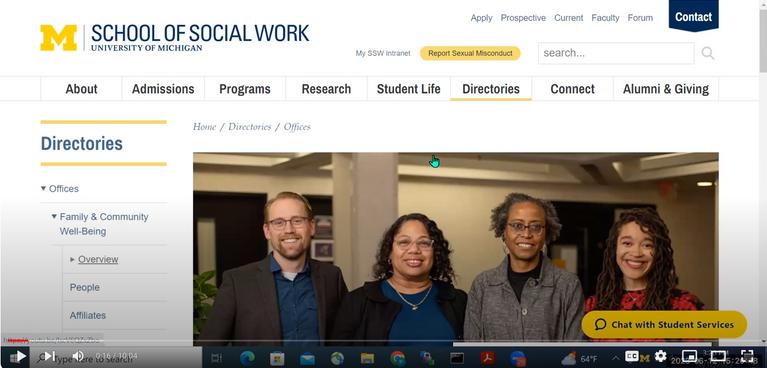

Grow Detroit’s Young Talent (GDYT) is a citywide summer jobs program that trains and employs young adults between the ages of 14 and 24 for up to 120 hours. Youth participants must be permanent residents of the City of Detroit and be eligible to work in the United States. There are a broad range of jobs available to the participants. Examples of jobs include: community cleanups, event planning, accounting, retail and the Junior Police or Fire Cadets to name a few. Last year, over 8,000 local youth received employment, which is our goal again this year.
GDYT Jobs placements are based on a developmentally appropriate, tiered model for summer employment:
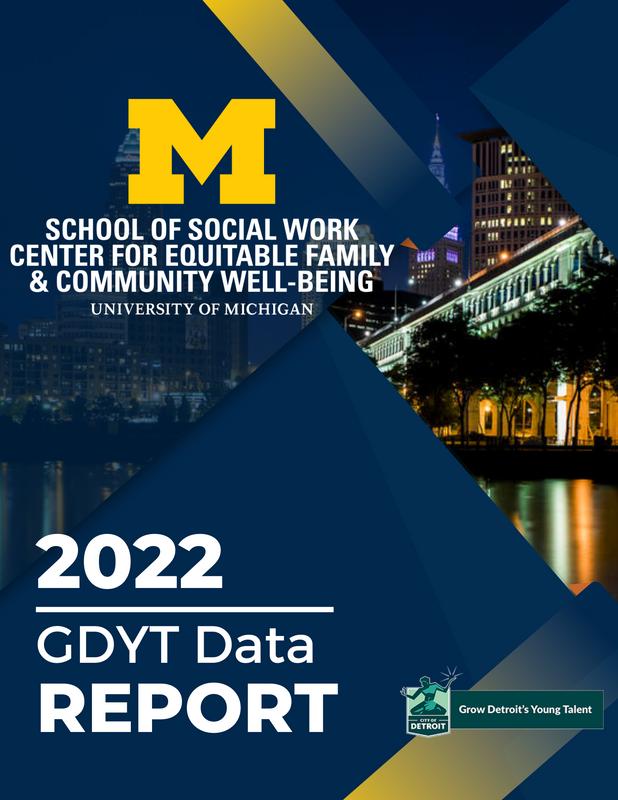
In our most recent white paper, "Does Small-Dollar Lending Help Close the Racial Wealth Gap in Metro Detroit?", delves into the impact of small-dollar lending on homeownership disparities. Examining data from the Home Mortgage Disclosure Act on 2,236 smallest-dollar loans in Metro Detroit from 2018 to 2021, we reveal that lending at the low end of the mortgage distribution perpetuates the racial wealth gap. Black borrowers experience higher leverage, reduced purchasing power, and limited wealthbuilding potential through homeownership compared to their White counterparts.
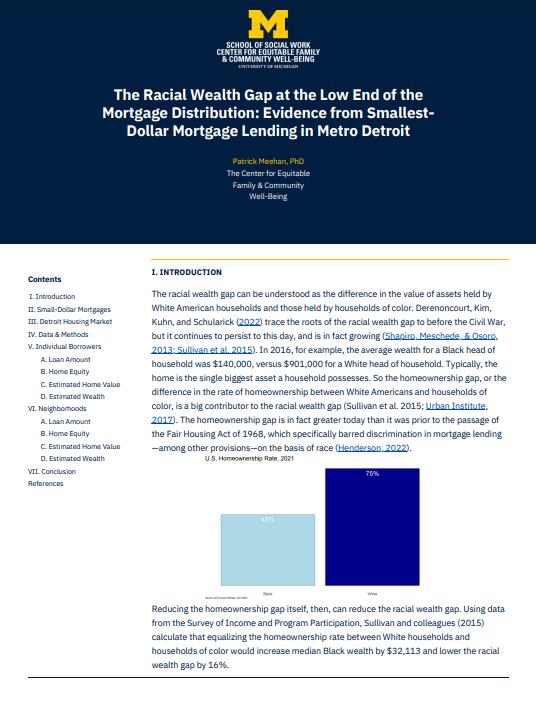
"The City of Detroit's down payment assistance (DPA) program makes available up to $25,000 to support Detroiters seeking to purchase a home in the city. This short guide details how Detroit residents can access the city's DPA funds, and details options to "stack" DPA from other sources to yield up to $45,000 to purchase a home The city has highlighted 13 mortgage lenders as participating in the program. Analyzing Home Mortgage Disclosure Act data, lender performance and volume of originations is discussed so that buyers can be better informed of lender performance before applying for a mortgage The paper also details information helpful to finding a home when properties with condition challenges, and limited availability in buyer-desired locations, constrain the supply of home options available for purchase.

Abstract
As an absolute measure of deprivation poverty fails to capture the impact pandemicrelated disruptions had on households. In this study, we use data from the Ypsilanti COVID-19 Study, a cross-sectional survey of 609 residents taken during the summer of 2020, to control for pandemic-related disruptions on bill-paying and food hardship. Using logistic regression models in which specific forms of bill-paying (i.e. late paying rent, late paying utilities) and food hardships (i.e. eating less over 7 days, worried food will run out) served as dependent variables, we find that disruptions to household finances, particularly job loss, significantly increased the likelihood of experiencing bill-paying and food hardship, respectively. Our study also controls for the type of hardship experienced to see which strategies households employed during the pandemic to exit material hardship. Through logistic regression models on methods of exiting material hardship, we find the type of hardship experienced was not predictive of applying for either SNAP or UI. Moreover, we find UI was less accessible to low-income individuals experiencing hardship. The findings from our study elaborate the relationship between pandemic-related disruptions and material hardship, and indicate to policymakers that preventing hardship in the first place is much more meaningful to households than attempting to use policy to bring households out of hardship once they experience it
Meehan, P., Shanks, T. Poverty Reduction is Not the Whole Story: The COVID-19 Pandemic Response in Relation to Material Hardship. J Fam Econ Iss (2023).

https://doi org/10 1007/s10834-023-09907-x

Throughout September and October 2022, our Center for Equitable Family and Community Well-Being team interviewed 49 participants in Grow Detroit’s Young Talent (GDYT) to better understand the barriers to banking and plans for future financial management for youth without accounts with financial institutions (i.e. unbanked youth).


We found that these youth perceived themselves to be good with money, and to practice sound financial management. Across all ages, experiences, and circumstances, they practiced bespoke methods of saving and money management they felt worked for them. Their financial needs were relatively self-contained, and many were making use of technology (such as mobile apps such as the Cash App and Venmo) that negated the need for accounts with financial institutions.

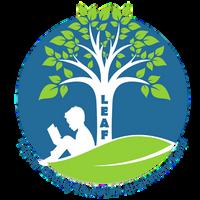
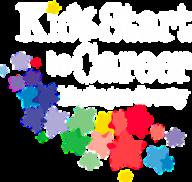
In collaboration with Our Center team CEDAM serves as a partner in building a wider understanding of Child Savings Accounts in the state of Michigan. Our team offers valuable evaluation capacity in conjunction with existing CEDAM partnerships
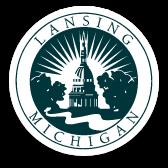

Accomplished:
Next Steps:
Currently working with 4 CSA innovation grantees across Michigan Documenting innovation across 4 CSA programs to capture a working road map for how other CSA programs can implement similar innovations. Building out statewide common engagement CSA metrics on early interventions, multigenerational utilization, and community support Creating annual state of CSA reports
March-Meenagh MANAGER OF SUSTAINABILITY & EVALUATION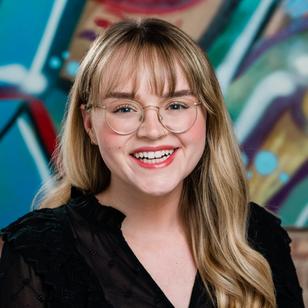 DIRECTOR OF ECONOMIC INCLUSION
DIRECTOR OF ECONOMIC INCLUSION

 Brian Rakovitis
Madeleine
Brian Rakovitis
Madeleine

Consisting of nonprofits, private and public (municipal), and philanthropic supporters with over 100 years (combined) of experience. Southwest Economic Solutions (SWES) and Southwest Housing Solutions (SWHS) serve as the lead agencies of ECCEA.

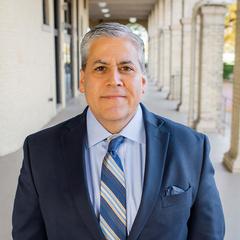
Detroit's ECCEA tackles wealth inequity for minority urban residents by addressing historical discriminatory practices and policies through their roadmap. Over a decade, they'll revitalize a 60-block community via strategic investments, fostering homeownership, businesses, mental health services, and community engagement, partnering with public and private sectors to boost intergenerational wealth and reshape the local economy.
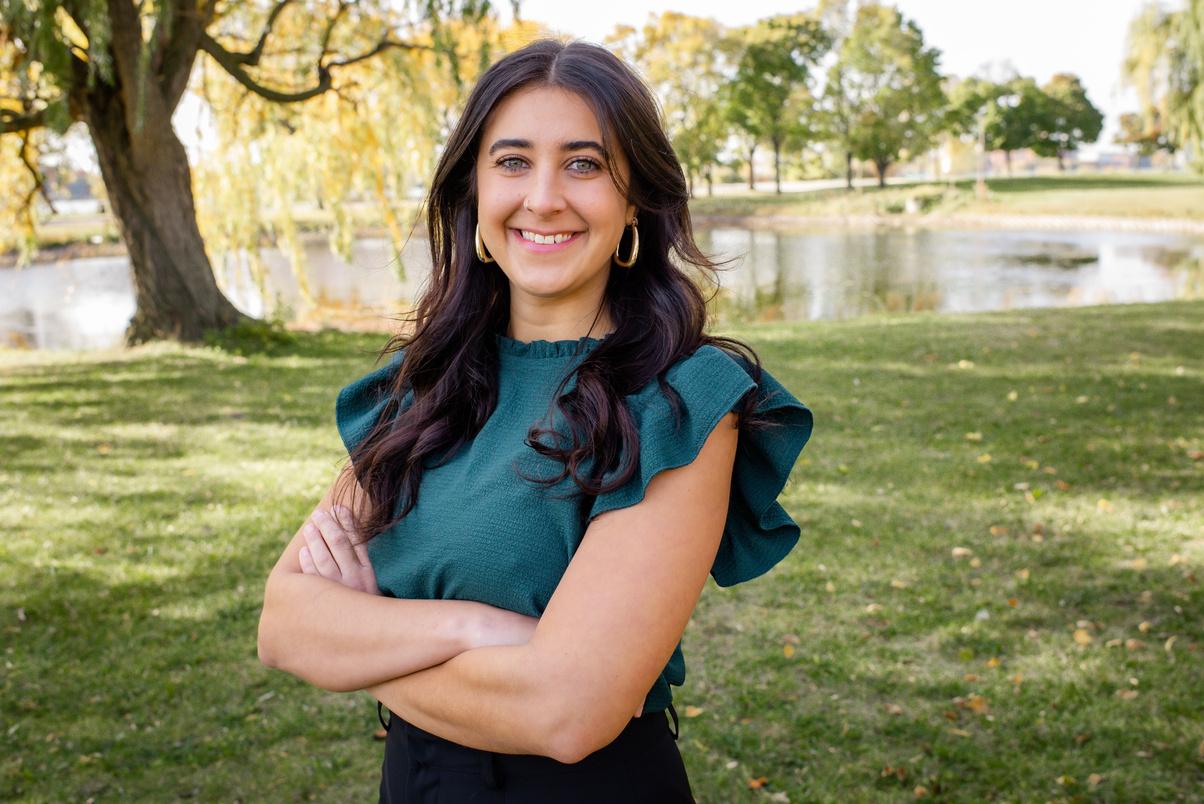 Alex Makohn Senior Manager, Homeownership Assistance Programs
Hector Hernandez Executive Director
Alex Makohn Senior Manager, Homeownership Assistance Programs
Hector Hernandez Executive Director
The Community Priority Fund (CPF) has selected 23 organizations to receive ARPA funding aimed at addressing equity concerns within 5 key categories: Direct Assistance to Households, Community Violence Interventions, Expanding Early Childhood Education, Addressing Housing and Homelessness, and Tackling Educational Disparities.
Our Center is actively evaluating each of these 23 projects, aiming to comprehensively depict the accomplishments of each grantee.
Through collaborative efforts, we're working closely with these projects to establish racial equity metrics for the county, while also aiding in the development of internal mechanisms to enhance their capacities.


The Rescue Plan encompasses endeavors such as establishing a financial empowerment center, supporting small businesses, expanding broadband access, enhancing infrastructure, and fortifying climate readiness.
Anticipate our final report to be ready by the summer of 2024, at which point we will disseminate the findings within the county.

Can the transformation of Detroit’s under-resourced neighborhoods move the region towards a more egalitarian metropolis?

This session concentrated on the issues of affordable housing as an opportunity for Detroit, without the predatory lending, unfair tax assessments, and other impediments to a long-term commitment to living in the city
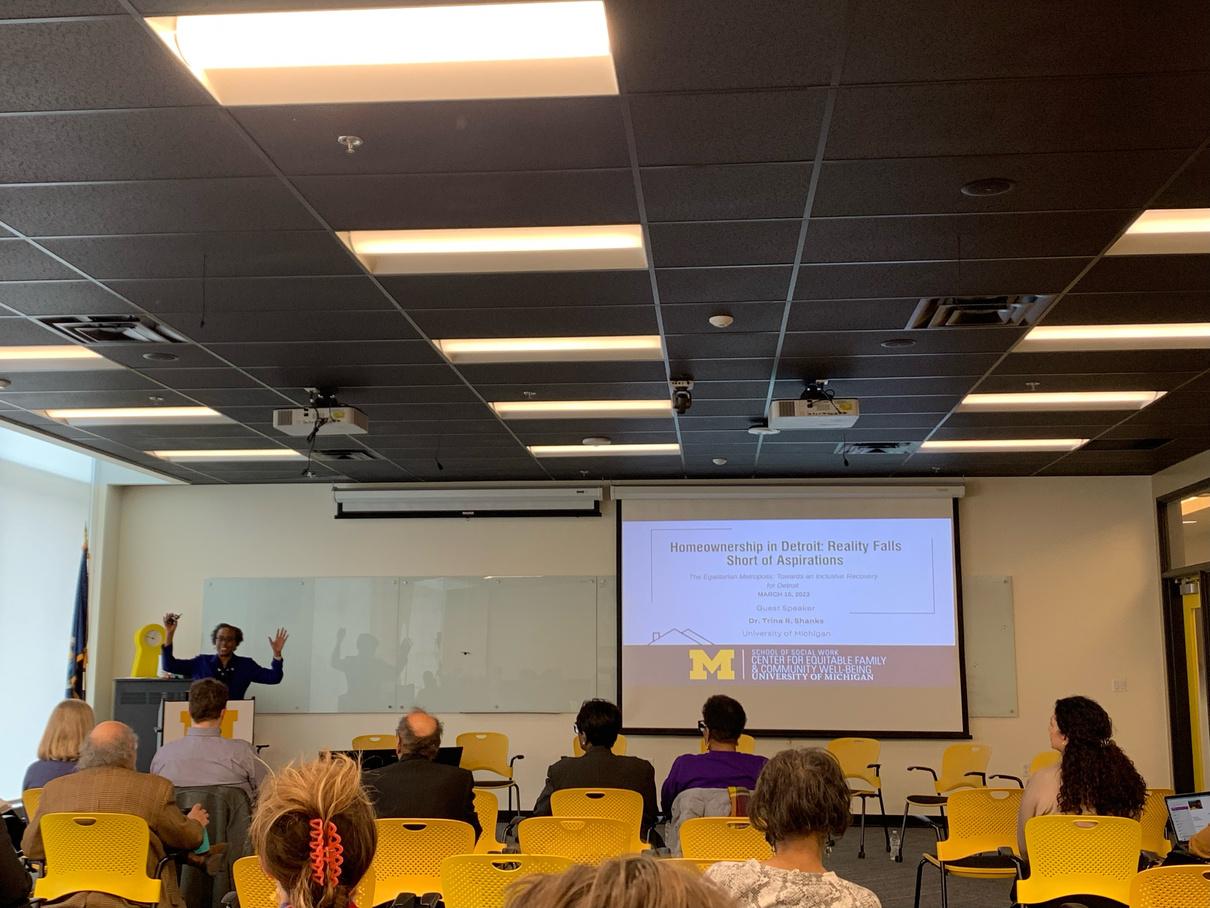
Thursday March 30th 2023


Dr. Sean J. Drake joined by discussant Dr. Ashley E. Cureton delved into a presentation addressing the longstanding issues of educational inequality. The presentation offered a nuanced perspective on the intricate interplay between race and class, shedding light on how these factors intersect to impact within-community school segregation.

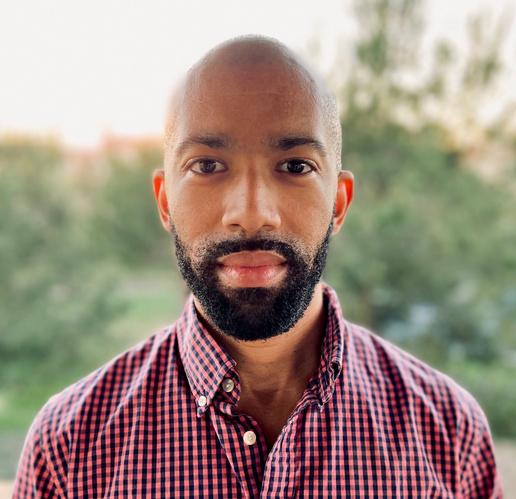 SPEAKER DR.SEANJ.DRAKE
SPEAKER DR.SEANJ.DRAKE
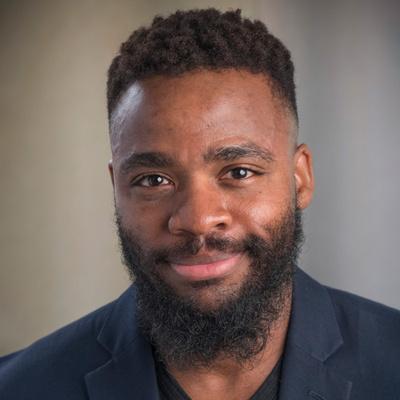
September 2022 Visiting Assistant Professor in the School of Education at the University of St. Louis "Effective school districts for Black students: National insights with implications for policy and practice "
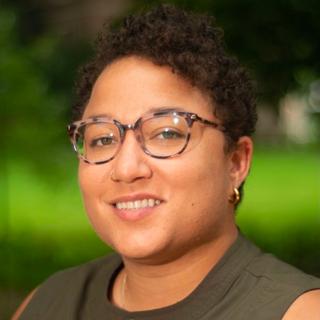
December 2022 Assistant Professor of Social Work at the University of Michigan "Not only in the public sector: Toward a theory of co-production in the nonprofit human service field."
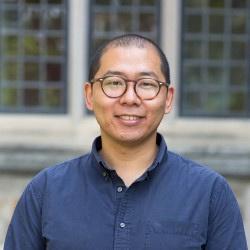
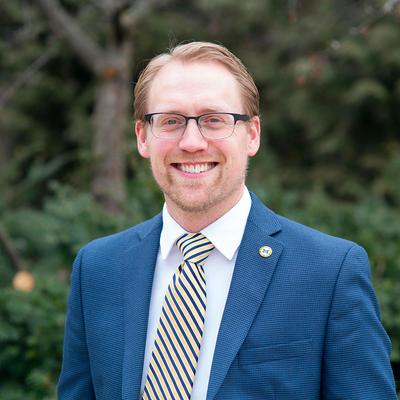
February 2022 Patrick Meehan Program Manager with the Center & Elizabeth Harris PhD Candidate in Sociology and Social Work, presented their work, "Information for exclusion: Explaining disparate mortgage application denials in Detroit through projected appreciation bias "
Areyouinterestedinequityand community-engagedresearch?Would youliketoconnectwithlike-minded scholarstoimprovethelivesofchildren andfamilies?
ConsiderjoiningtheCenterforEquitable FamilyandCommunityWell-Beingasa FacultyAffiliate.AsaFacultyAffiliate,you willbeinvitedtosharemanuscriptsand proposalsindevelopmentatour CommunityEquityWorkshopSeriesevery twomonthsduringtheacademicyear. AffiliatescanalsocollaboratewithCenter stafftoorganizefutureeventsor collaborativeresearchthatbringscholars andcommunitymemberstogether.
